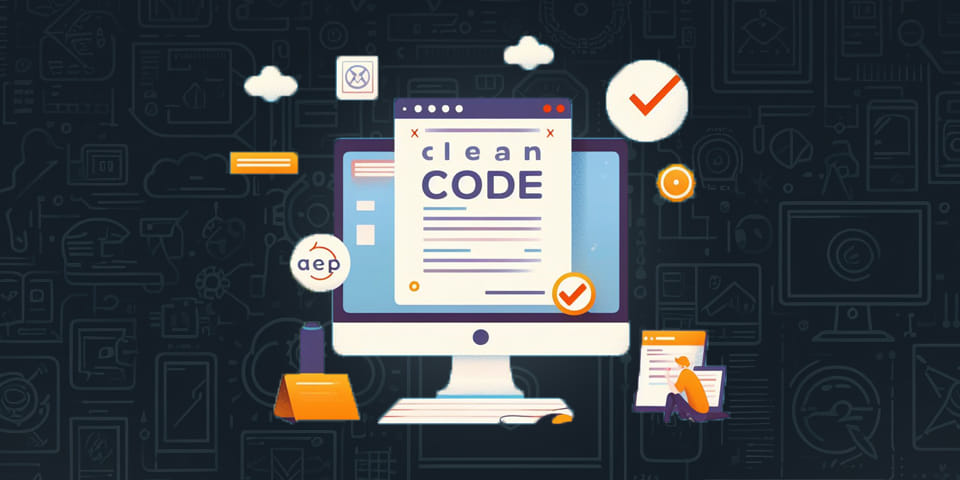
Writing Clean Code in JavaScript

Writing clean code is one of the most essential practices in software development. It not only eases collaboration and code maintenance but also enhances code readability and overall software quality. In this article, we’ll explore some principles and examples of writing clean code in JavaScript.
1. Meaningful Names
A good starting point for writing clean code is using descriptive names for variables and functions. This improves code understanding. For example, instead of using a vague name like x, we could opt for something more descriptive:
// Poor
const x = 10;
// Good
const initialSpeed = 10;2. Small and Concise Functions
Functions should be short and perform a single task. This enhances code understanding and maintenance. Here’s an example:
// Poor
function processData(user) {
// Performs multiple tasks
}
// Good
function getUserInformation(user) {
// Retrieves user information
}
function calculateStatistics(user) {
// Computes user statistics
}3. Meaningful Comments
Comments should be used sparingly and only when necessary. They should explain the “why” rather than the “what.” For example:
// Poor
let result = a + b; // Add a and b
// Good
let result = a + b; // Calculate the result needed for the monthly report4. Avoid Duplication
Code duplication hinders maintenance. It should be avoided whenever possible. Here’s an example of reducing duplication using a function:
// Poor
function calculateVAT(price) {
return price * 0.16;
}
function calculateTax(price) {
return price * 0.16;
}
// Good
function calculateTax(price) {
return price * 0.16;
}5. Consistent Formatting
Consistent code formatting makes it easier to read. Choose a formatting style and adhere to it throughout the project. You can use tools like Prettier to help with this.
// Poor
function greet() {
console.log('Hello, world!');
}
// Good
function greet() {
console.log('Hello, world!');
}Conclusion
Writing clean code in JavaScript is crucial for creating high-quality software. Use meaningful names, keep functions small, provide helpful comments, avoid duplication, and maintain consistent formatting. By following these principles, your code will be easier to maintain and collaborate on, and you’ll become a better developer.
Remember that code cleanliness is not a one-time task but a continuous process. Invest time in improving your existing code and enrich your development experience.